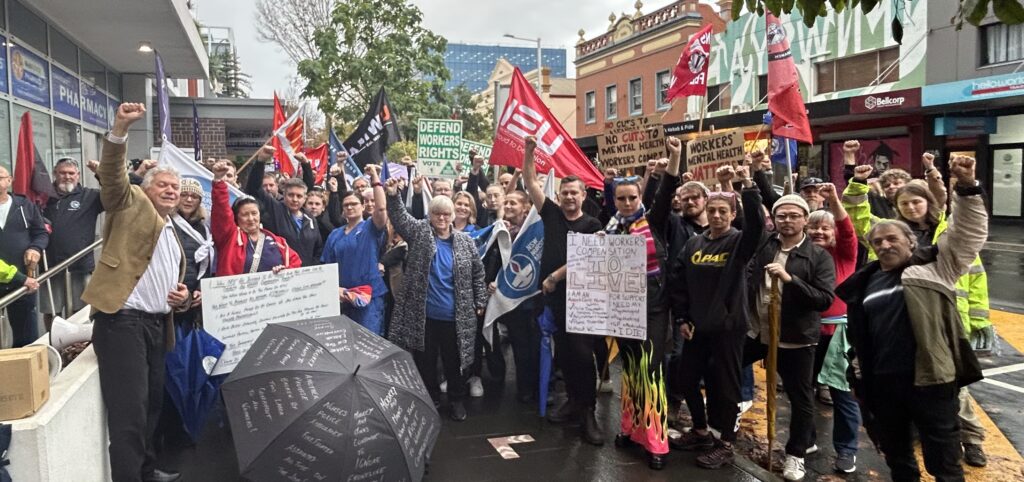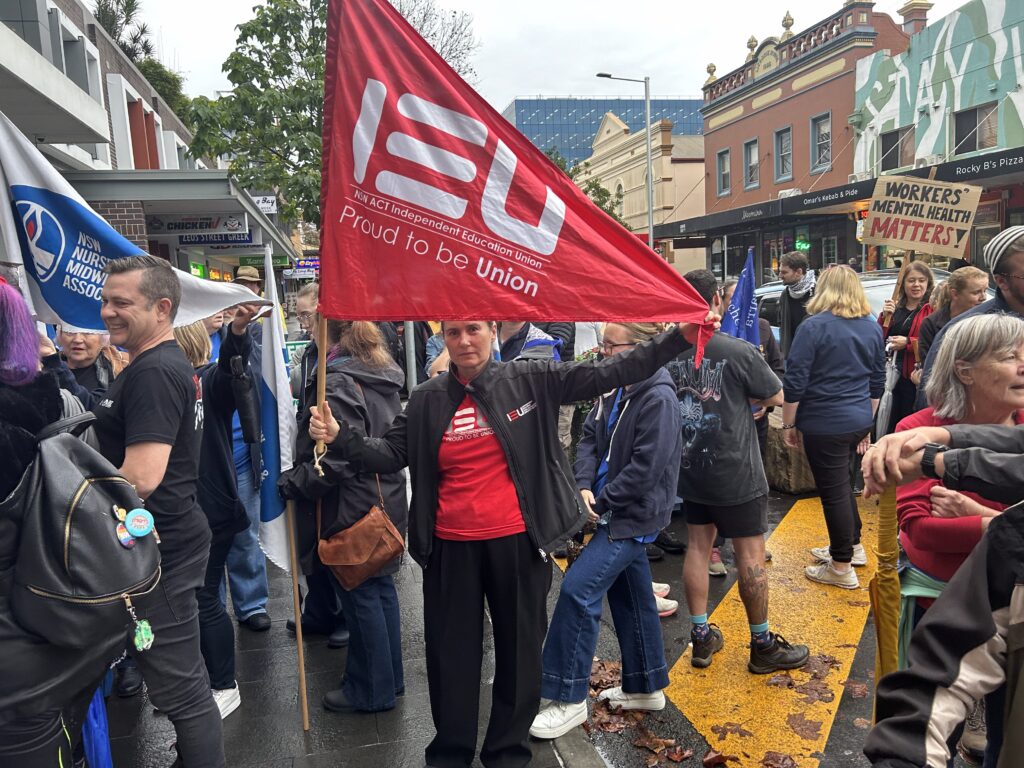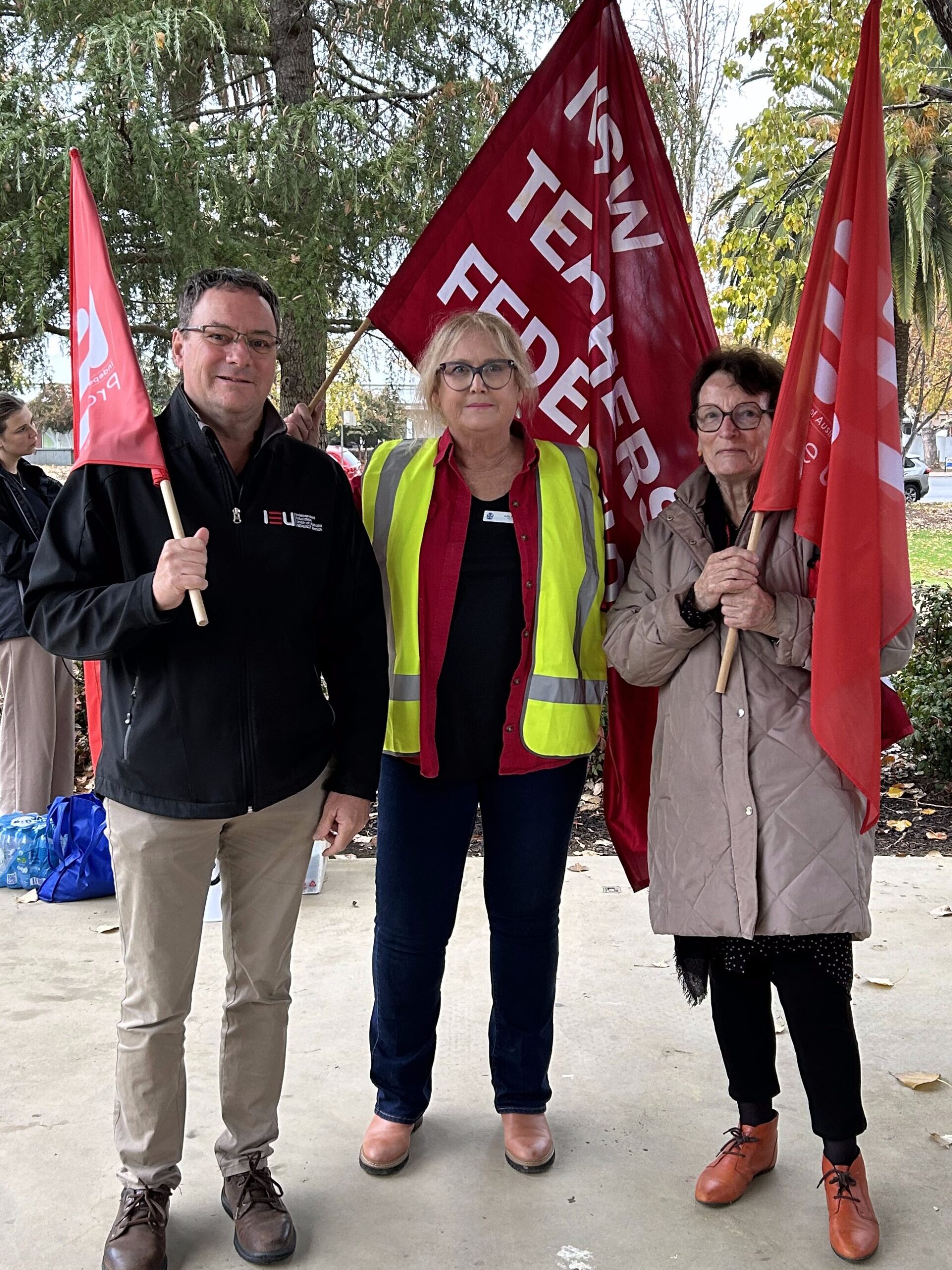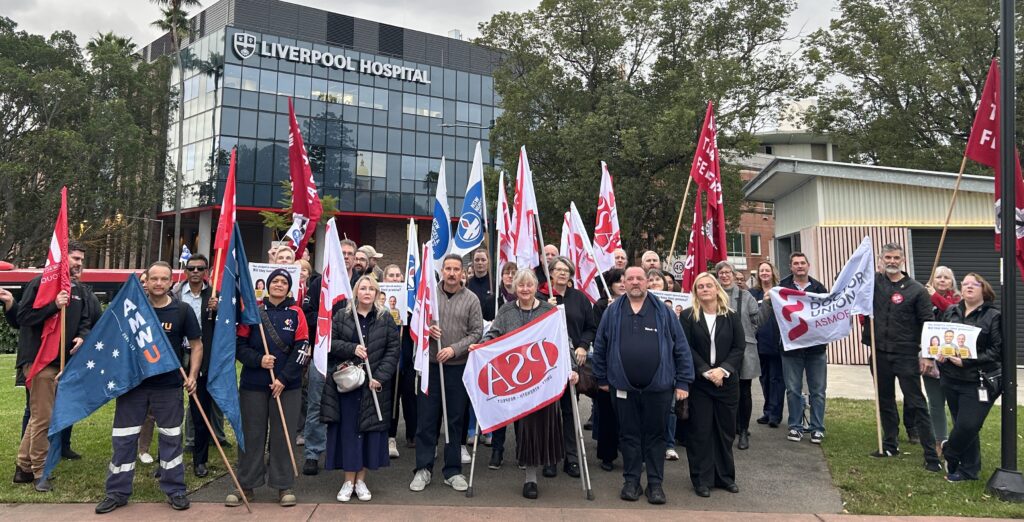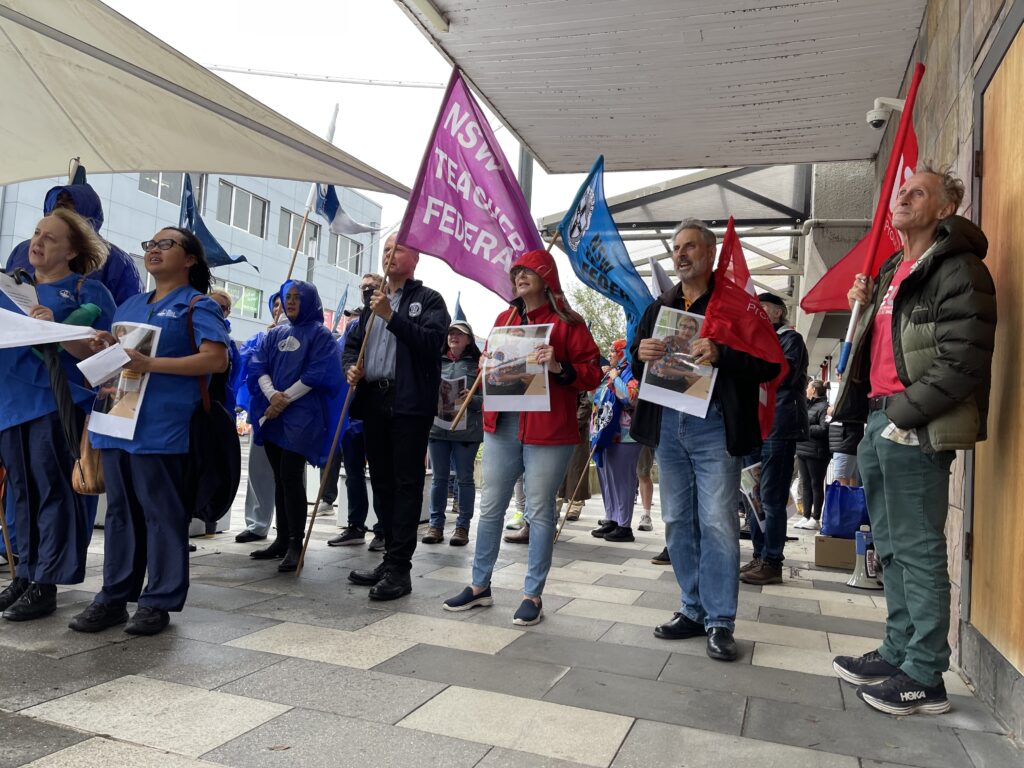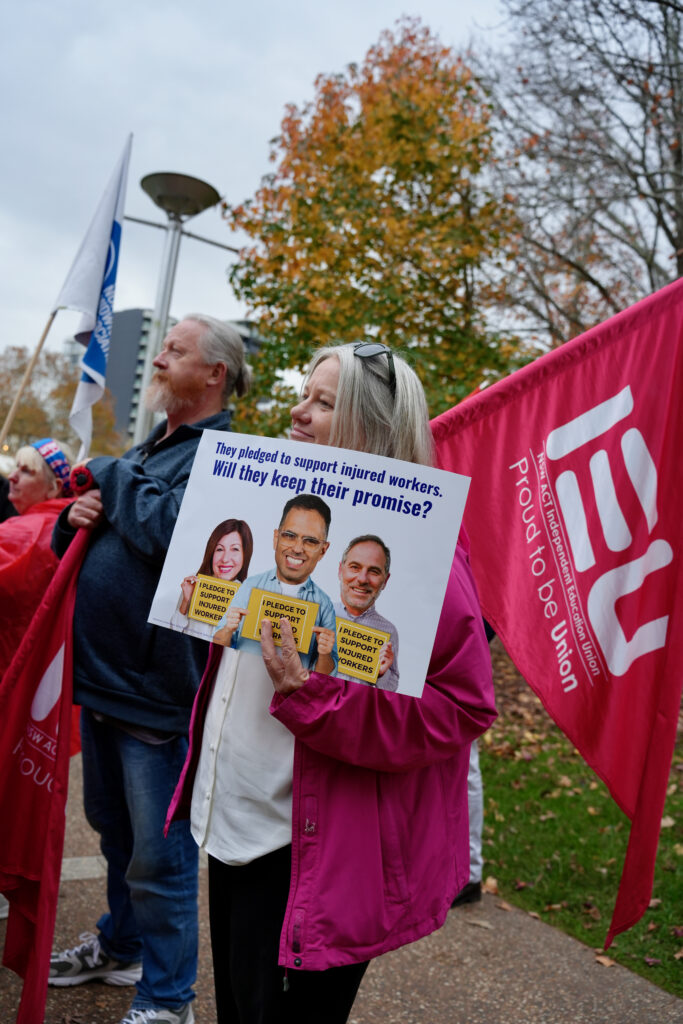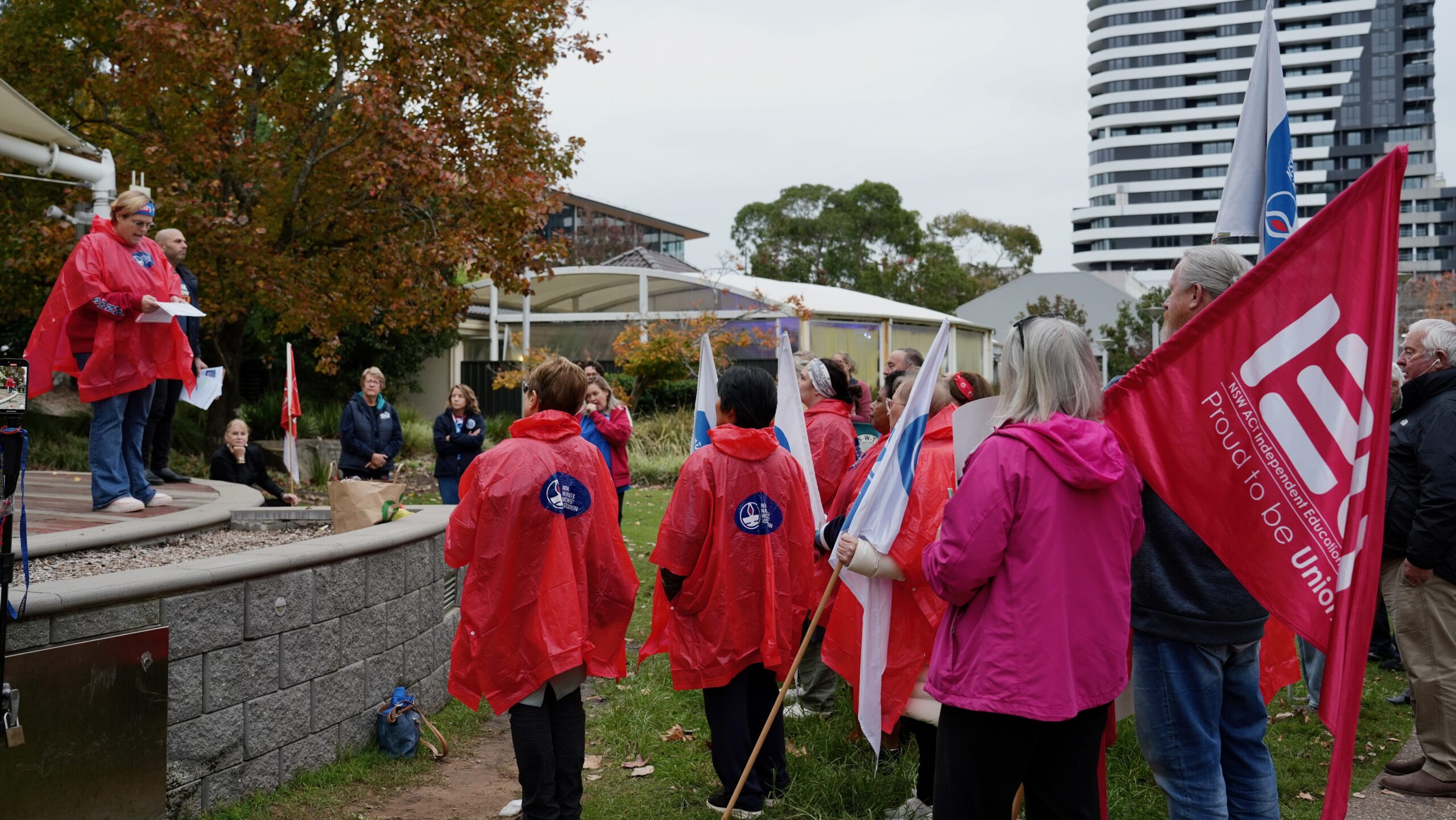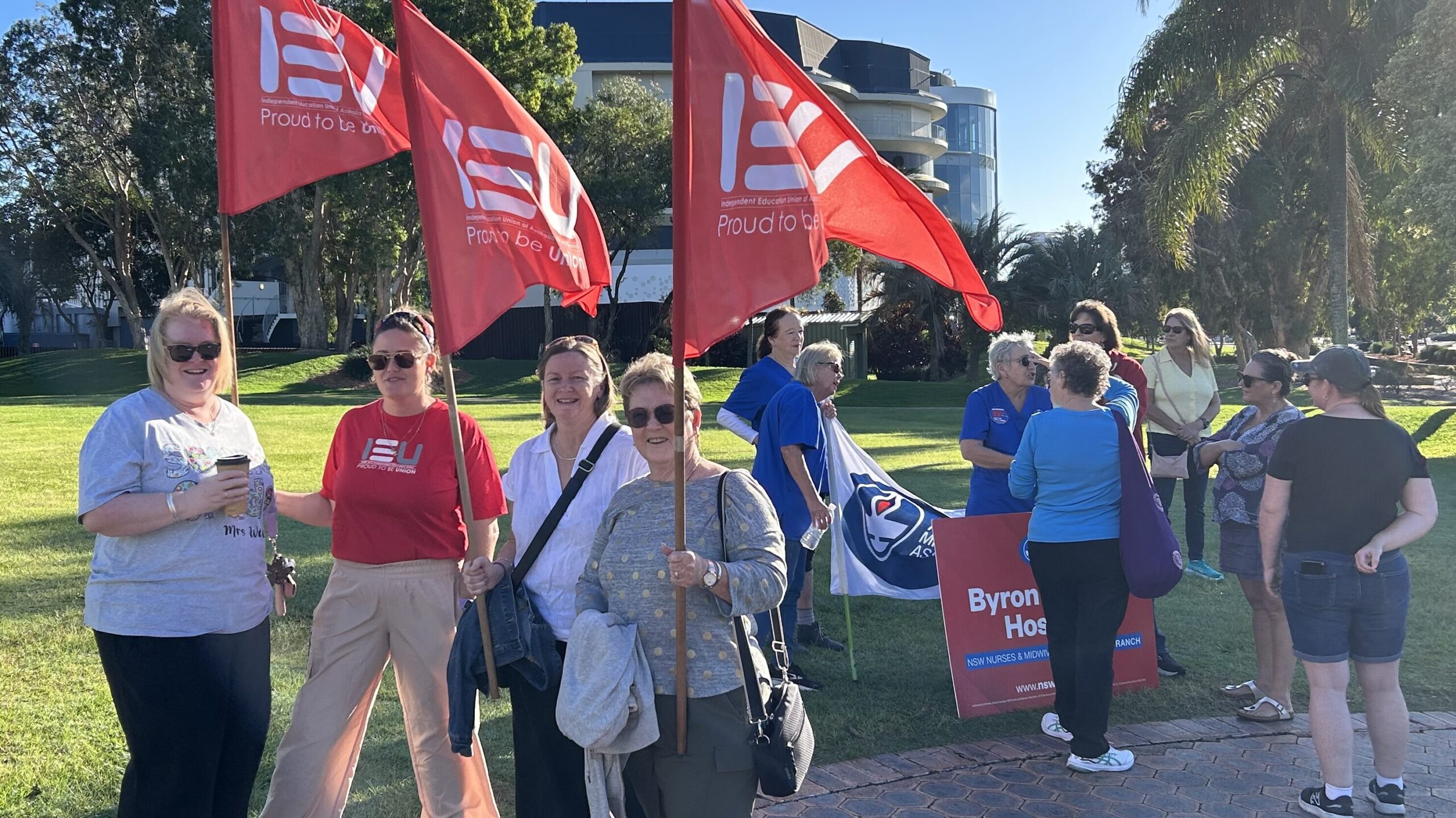The IEU has joined other unions in calling on the NSW government to fix its ill-conceived overhaul of workers compensation laws. Unions have been campaigning for weeks against the proposed changes.
The Bill, which passed the NSW lower house on 3 June, was referred to an inquiry by the NSW upper house on 5 June.
The Bill, if passed as is, will make it much more difficult for employees suffering psychological injuries to get the support they need.
The government’s Bill aims to cut benefits for people suffering psychological injuries after 2½ years, with medical treatment cut off after 3½ years. To receive long-term support, an employee would need to suffer a whole person impairment (WPI) rating of 31 per cent rather than the current figure of 15 per cent. The NSW Greens and the Coalition have indicated they will not support this aspect of the Bill in the upper house.
Under the Bill, workers who sustain psychological injuries can only claim compensation if their injury is caused by an “event” of the type specified in the Bill. There is a narrow list of events, including being subjected to violence or the threat of violence, witnessing a traumatic incident or being the victim of bullying or racial or sexual harassment.
The government had also intended to require a worker who suffered an injury because of bullying or racial or sexual harassment to get a ruling from the Fair Work Commission before they could access support. This requirement was dropped following union pressure.
Union campaigning also prompted the government to include excessive work demands as a cause of injury for which an employee could claim. However, if “reasonable management action” such as demotion, dismissal, reclassification or performance appraisal was a significant cause of the injury, the worker cannot claim.
Unions still consider the Bill to be unfair. Those most likely to need mental health care and support are essential workers in the health, emergency services and education sectors. The proposed changes would overwhelmingly affect women, who form a big proportion of the health and education workforce.
This is why the IEU joined rallies throughout NSW in the past few weeks. The rallies forced the government to back down on some of its harsher changes. But this is not enough.
Unions have rallied across NSW to stand up and fight back against the harmful changes
Harmful proposals
The changes, driven by NSW Treasurer Daniel Mookhey, will make it almost impossible for working people to access long-term care and support for psychological injuries such as post-traumatic stress disorder. The proposed reforms would punish teachers and school support staff, as well as staff in the care and community sectors, who are already at higher risk of psychological harm from heavy workloads and high-stress, emotionally demanding environments.
Even worse, the changes will not reduce or prevent workplace psychological injuries.
A Unions NSW survey of more than 10,000 essential workers – teachers, disability workers, firefighters, nurses and emergency services personnel – found the proposed changes will put them at extreme risk of further harm or severe financial hardship. Cutting off working people from mental health support and care puts them at risk of increased debt, as well as stress and anxiety and the breakdown of family relationships. The proposed changes will also force injured workers back to work before it is safe.
Martin Place Workers Compensation Rally – 26 May 2025


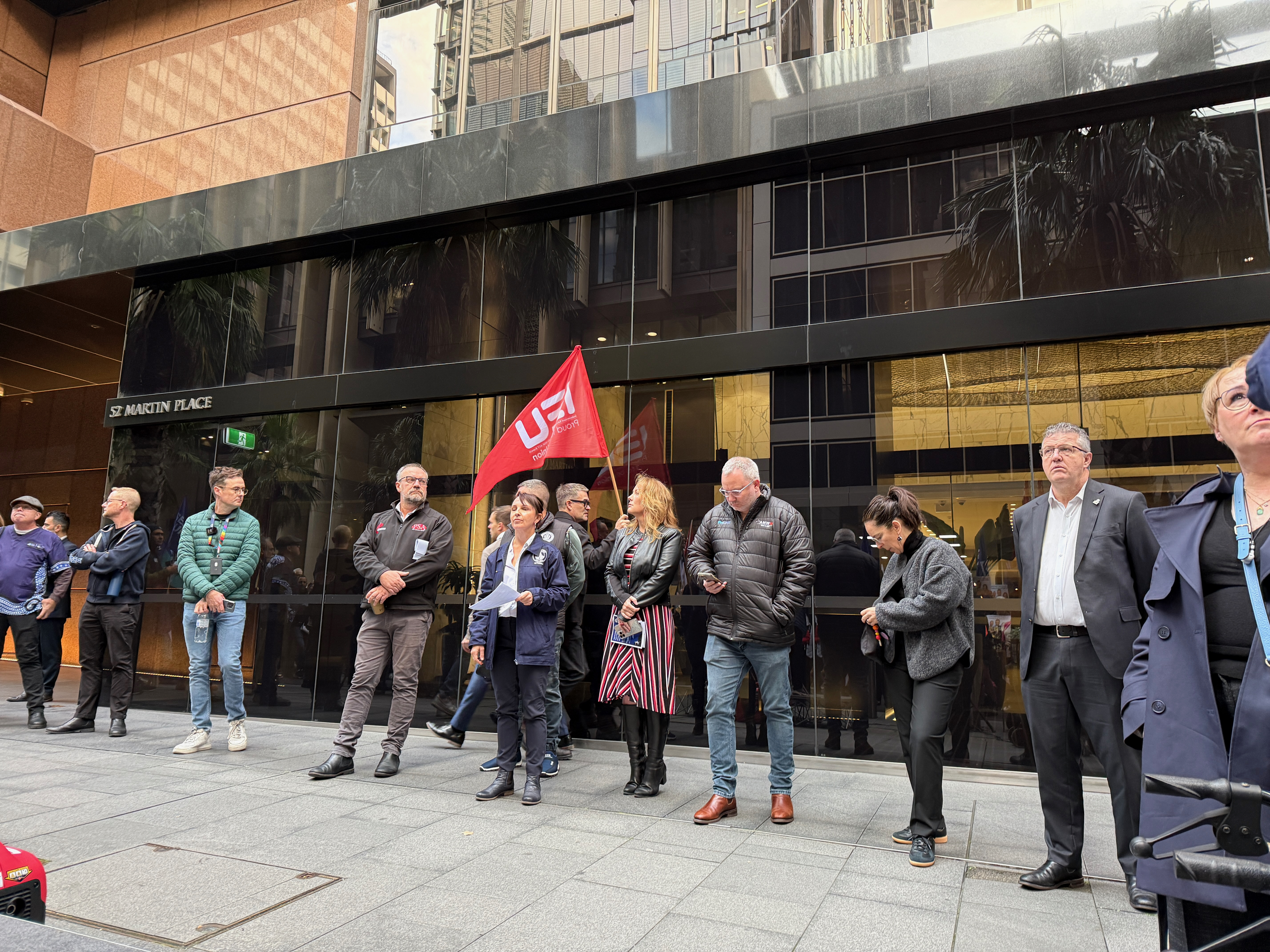
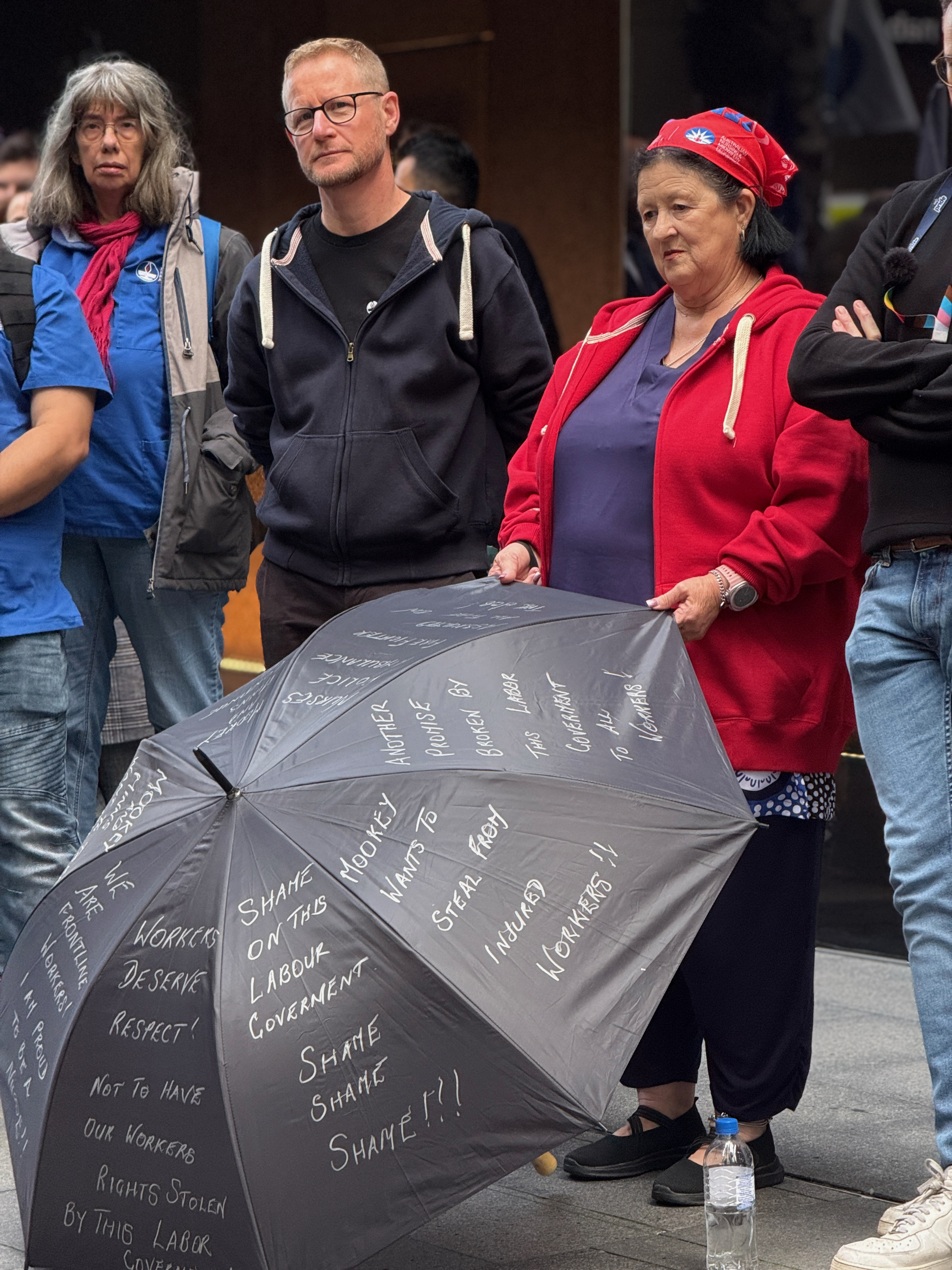
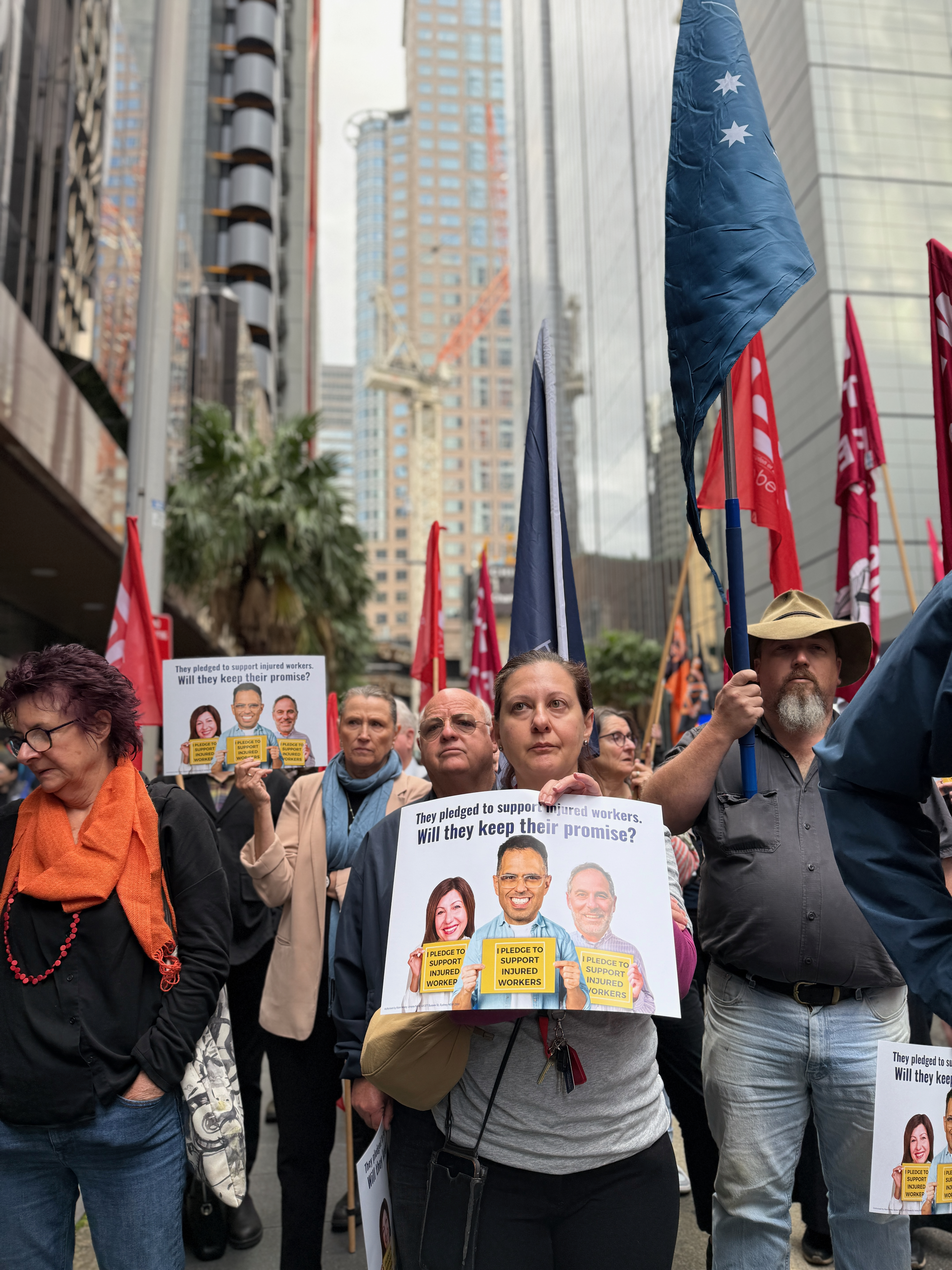
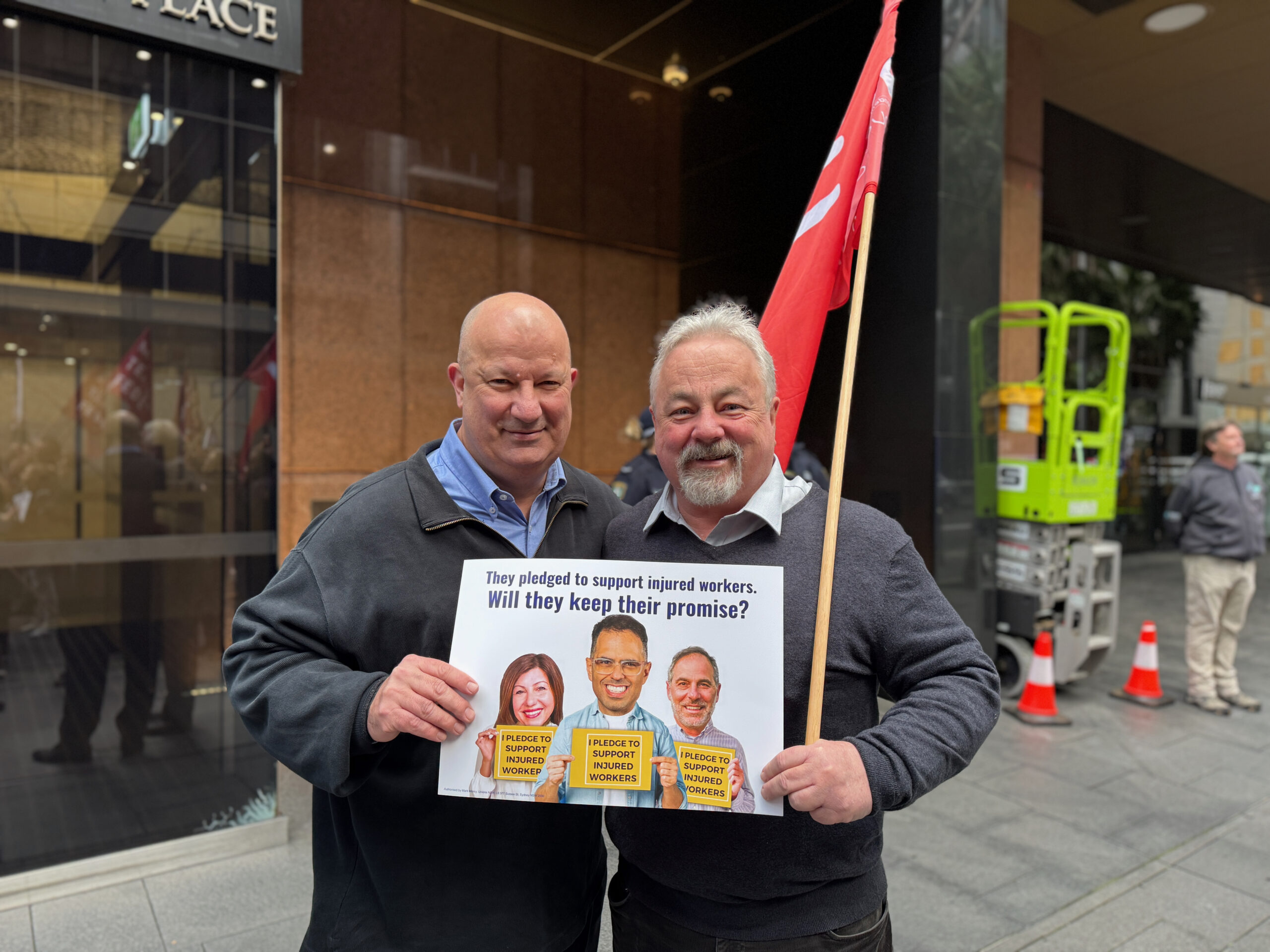
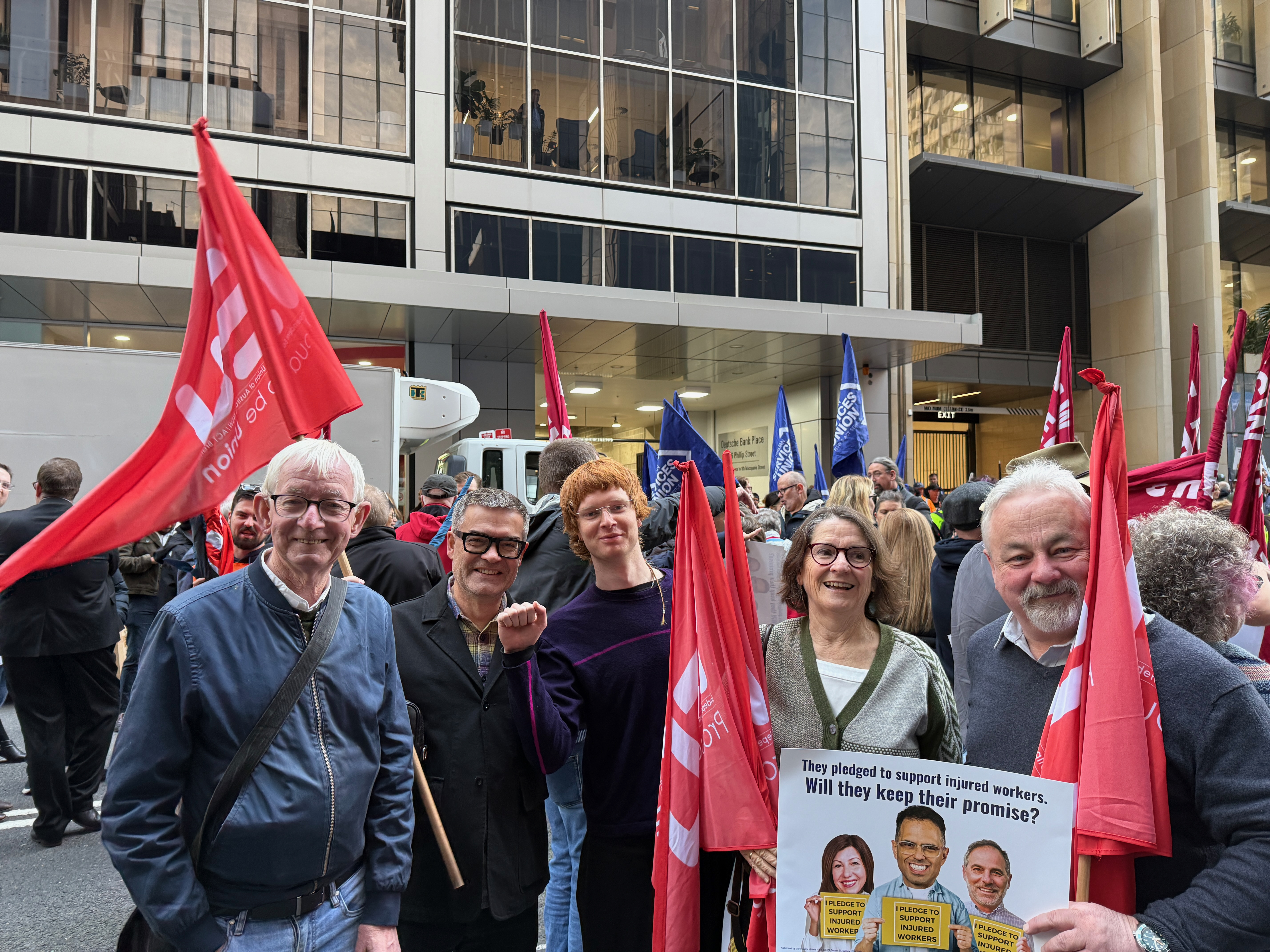
Barriers to mental health support
A one-day parliamentary inquiry in May heard that as few as 27 of the hundreds of employees afflicted by psychological injury at work each year would be eligible to claim long-term benefits under the proposed changes. The IEU’s submission to the inquiry highlighted the union’s concerns that the proposed changes put up barriers to mental health support and care, such as arbitrary caps on benefits and lump-sum compensation.
The changes treat mental health as less legitimate than physical injury, despite overwhelming evidence of the clear and lasting impact psychological harm has on workforce participation and wellbeing. Mr Mookhey told the inquiry that radical reforms were required to ensure the financial viability of NSW’s workers compensation scheme. However, the IEU strongly believes a system dependent on the suffering of our members, most of whom are women, is not acceptable.
The proposed changes are extreme, harsh and will hurt seriously injured employees.
Real reform needed
Lawyers, doctors and mental health professionals have also expressed concern that the government’s proposals are contrary to the interests of workers. NSW Bar Association president Ruth Higgins said the proposed changes would substantially reduce access to compensation, while introducing additional and unnecessary delays.
“Possible alternatives for reducing the financial pressures on the scheme appear not to have been adequately considered,” Higgins said.
The IEU agrees that the current workers compensation system needs reform to ensure it adequately serves the needs of NSW workers. But the government should begin by addressing poor claims management, unnecessary delays and excessive bureaucracy to rein in costs instead of attacking injured workers. The focus should be on preventing injuries and trauma and returning injured employees back to work sooner.
Waste and inefficiency within the scheme should be fixed. Self-insurer and specialised insurer arrangements that may undermine the scheme’s financial stability should be examined.
Calling for safety and prevention
The NSW government and employers need to do more about eliminating hazards such as workplace violence, racial and sexual harassment, excessive workloads and poor support from supervisors and management. Employers can also reduce psychosocial hazards and the cost of workers compensation by employing more staff, and improving pay and conditions. Employers must face penalties when safety laws are broken.
Teachers and school support staff deserve the best levels of support and care for the impacts of work on their mental health. IEU members should not be punished for poor management of the workers compensation system by successive state governments and employers.
NSW Workers Compensation Rallies – 21 to 30 May
